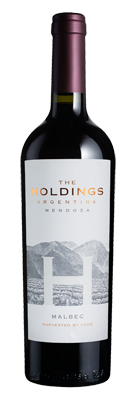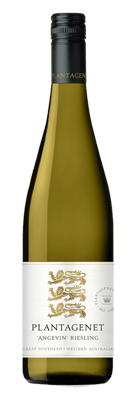Filter by
- Delicious 94pt Barossa Valley Shiraz. “Another cracker from the excellent 2021 vintage" (Halliday).$35.00 RRPfrom $35.00 when you mix 12+
- Plump and polished 93pt Grenache from the Barossa's iconic Burge family$28.00 RRPfrom $23.99 when you mix 12+
- $24.00 RRPfrom $18.99 when you mix 12+
- $25.00 RRPfrom $16.99 when you mix 12+
- Gold after Gold for this aromatic wonder of the Fleurieu...$30.00 RRPfrom $22.99 when you mix 12+
- 94pt Great Value WA Shiraz a “lovely red … wonderfully drinkable. Utter charm” (Halliday).$32.00 RRPfrom $24.99 when you mix 12+
- Trophy and Top Gold-winning, vibrant and elegant blend from cool climate vineyards.$45.00 RRPfrom $38.99 when you mix 12+
- Gloriously silky, elegant flagship red from a small family estate.$57.00 RRPfrom $49.99 when you mix 12+
- New vintage of the flagship, barrel-aged Shiraz from the pioneering RedHeads in the Barossa Valley.$50.00 RRPfrom $50.00 when you mix 12+
- A "lovely contemporary Barossa Reserve Shiraz" (Halliday) with three Golds and 2 x 95pt scores.$50.00 RRPfrom $45.99 when you mix 12+
- "Outstanding vlaue" Cabernet with scores of 92 and 95pts.$22.00 RRPfrom $19.99 when you mix 12+
- Bright, fruit-forward, Gold-winning Marlborough Pinot Noir from one of the region’s finest estates.$35.00 RRPfrom $35.00 when you mix 12+
- Silky fruit-filled Malbec from Familia Zuccardi, one of Argentina’s finest cellars.$32.00 RRP$21.99 when you mix 12+
- Always exciting release from top Victorian Riesling producer, Delatite.$30.00 RRPfrom $25.99 when you mix 12+
- Gold-medal, 90pt Langhorne Creek Cab from cricket legend Ricky Ponting & award-winning Ben Riggs.$25.00 RRPfrom $23.99 when you mix 12+
- Pure, silky Malbec red – Argentina's great hero grape – from the highly awarded Bodegas Antigal.$28.00 RRPfrom $19.99 when you mix 12+
- "A lovely ripe style of Pinot..." (Wine Pilot), with Gold and scores of 94 & 95pts.$40.00 RRPfrom $35.99 when you mix 12+
- Textured and silky Pinot Noir with savoury notes and spice from cool climate Tumbarumba.$80.00 RRPfrom $55.99 when you mix 12+
- "Captivating" 93pt Tempranillo from cool-climate vineyards and the excellent Bryan Currie.$45.00 RRPfrom $39.99 when you mix 12+
- Lively 93pt Single Vineyard Riesling from remote Great Southern.$34.00 RRPfrom $28.99 when you mix 12+
- 95pts Hunter Chardonnay from an outstanding vintage.$40.00 RRPfrom $40.00 when you mix 12+
- 94pt Shiraz Shiraz Shiraz – from three distinct Marananga (Barossa) vineyards.$25.00 RRPfrom $21.99 when you mix 12+
- Two Golds, 95pts and 'Best in Varietals' title for this vibrant RedHeads blend.$24.00 RRPfrom $18.99 when you mix 12+
- $25.00 RRPfrom $17.99 when you mix 12+
Wine FAQs
What is vegetarian wine?
Although wine is made from fermented grapes, it isn’t always vegetarian-friendly. Although grapes are the main ingredient in wine, animal-based products are often used during the winemaking process to clarify and stabilise the wine, before it is bottled. However, there are alternative products that can be used for this, allowing for the production of vegetarian-friendly wines.
Why is wine not vegetarian?
Wine isn’t always vegetarian, and that’s down to the ‘fining’ process. This clarifies wine to remove any impurities or suspended solids that can impact its clarity and stability. Winemakers typically use animal-derived products to do this, and that can make a wine not strictly a vegetarian drink.
The substances don’t remain in the wine – they are removed along with the particles they help to clear out. Depending on the type of fining agent use, the resulting wine may not be suitable for vegetarians.
Traditional fining agents can include:
Gelatin – derived from animal bones and connective tissues
Isinglass – made from fish bladders
Egg whites (Albumin) – used particularly in red wines
Casein – a protein derived from milk.
If either of the first two are used, the wine is not vegetarian.
If any of the above are used, the wine is not vegan.
What’s the difference between vegan and vegetarian wines?
Rather than traditional fining agents such as gelatin and isinglass, vegan wines are made using alternative agents.
These can include:
Activated charcoal
Silica gel (a form of silicon dioxide)
Pea protein
Bentonite (a type of clay with strong absorptive properties)
While a vegetarian diet involves eating plant-based foods and avoiding meat and fish products, some vegetarians eat eggs and milk. Wine can be included in a vegetarian diet as long as the fining agents used are also suitable for vegetarians.
As fining agents aren’t classified as ingredients and, therefore, are not listed on a wine’s label, you may wish to choose a wine labelled as vegan to be sure of its suitability.
How do you know if a wine is vegetarian?
Look for a wine labelled as vegetarian or bearing a vegetarian symbol or logo. Occasionally, wineries may even specify the fining agents they’ve used in their winemaking process online.
On our website, you can check the information section of the wine description to see if a wine is vegetarian.
Or you can simply browse the wines on this page.
Do vegetarian wines taste better?
How a wine tastes is influenced by many factors, principally the grape variety used, the soil and climate in which grapes are grown, winemaking techniques and how the wine is aged.
The same is true of vegetarian red wine and white wine.
Traditional animal-derived fining agents and their vegetarian alternatives are used to clarify and stabilise wine – not to impart flavour. They are used in small amounts and are removed from the wine along with the impurities they clarify.
Consequently, the choice of fining agent usually has a minimal impact on the taste of the wine.
Some winemakers choose not to fine or filter their wines at all. These wines might present different flavours compared to conventionally produced wines, but this is related to the overall winemaking philosophy and methods, not specifically whether the wine is vegetarian.
Is vegetarian wine popular in Australia?
Vegetarian wine is becoming more popular in Australia as consumers become more aware of the impact their choices have on their health and the environment. This has led to a rise in demand for vegetarian products, including wine. Some people prefer vegetarian wine due to ethical concerns about the use of animal-derived products in the winemaking process.
Australia’s thriving wine industry has recognised and supported this trend by producing more wines using vegetarian-friendly methods.
How can I pair vegetarian wine with food?
No vegetarian dish would be complete without a delicious vegetarian wine to pair with it.
Pairing vegetarian wines with food follows the same rules as traditional food and wine pairings. Your focus should be on matching the wine’s characteristics with the flavours and textures of the dish. For example, a crisp, zesty Sauvignon Blanc pairs wonderfully with a fresh, crunchy green salad or a tangy goat cheese tart.
A full-bodied Cabernet Sauvignon with robust tannins and dark fruit notes would work well with a rich, hearty dish like mushroom and lentil stew or vegetable lasagne. The wine provides a delicious balance to the earthiness of these dishes.
Finish off your feast with a glass of late-harvest Riesling paired with a slice of apple strudel – the bright acidity and delicate floral notes of a Riesling would beautifully balance the richness of the dessert. Alternatively, try an Aussie Sparkling wine such as The Black Pig Sparkling White or Howard Vineyard Sparkling Pinot Noir Chardonnay with a tropical fruit Pavlova. The effervescence and vibrant fruit flavours can cut through the sweetness of the meringue and fresh fruit.



























